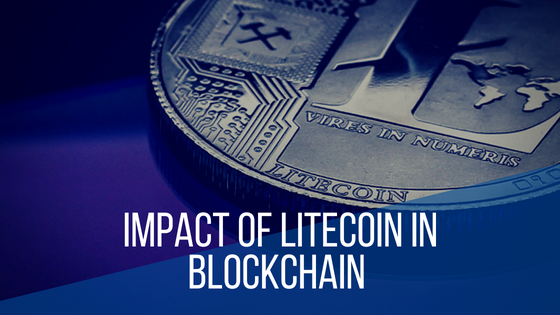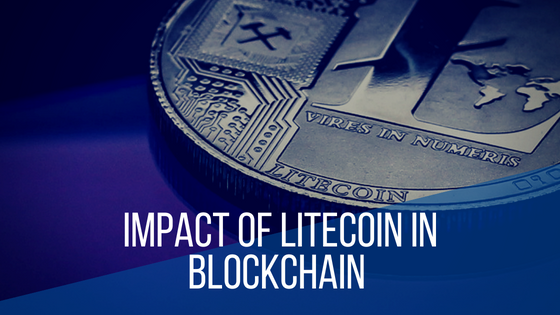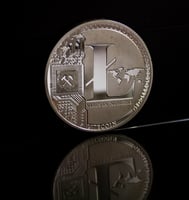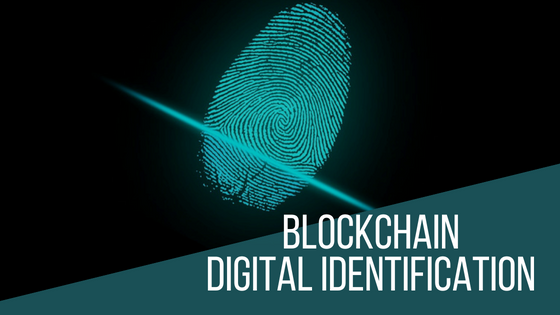Blockchain Digital Identification: Is it Progressive Enough?
Security, protection, privacy, and ease of use of information and data are at the center of worry in a data-driven world. Regardless of whether you...

Regularly alluded as the younger sibling of bitcoin, Litecoin is a distributed digital money that has picked up genuinely across the board approval. A type of money that uses a Blockchain to effectively manage a public ledger of all exchanges. Litecoin is utilized to exchange funds simply between people or organizations without the requirement for a mediator, for example, payment managing services or a bank.

As an ever-increasing number of individuals are grasping the world of cryptographic money, individuals are searching for investment possibilities outside of Bitcoin and Ethereum. Hence, Litecoin unmistakably looks a prevalent decision.
At first glance, Bitcoin and Litecoin share a great deal of similarity. And at primary level, they are obviously both digital forms of money. While state currencies, for example, the yen or the U.S. dollar depend on legal and political mechanisms for value and authenticity, digital currencies depend just on the cryptographic probity of the system itself. However, Litecoin and Bitcoin likewise contrast in a critical way.
Love what you read? Then grab a fresh piece of content right here.

Litecoin was presented by Charlie Lee in October 2011 with the objective of being the 'silver' to bitcoin's 'gold'.
Lee is a previous employee of Google, who created it to supplement Bitcoin by clarifying a portion of its issues, such as transaction fees, times, and concentrated mining pools.
Charlie Lee took the center code from Bitcoin and made his adjustments to the code and protocol to operate in a way that he felt would best take into consideration for the large-scale selection of the money.
Also Read: 5 Applications of Blockchain on Economy and Business
The table below highlights the fundamental differences between the two cryptographic currencies.
Bitcoin Litecoin
Coin limit 21 Million 84 Million
Mean block time 10 minutes 2.5 minutes
Algorithm SHA-256 Scrypt
Difficulty retarget 2016 block 2016 blocks
Block reward details Halved every 210,000 blocks. Halved every 840,000 blocks
Initial reward 50 BTC 50 LTC
Current block reward 25 BTC 50 LTC
Block explorer blockchain.info block-explorer.com
Creation date January 3rd, 2009 October 7th, 2011
Created by Satoshi Nakamoto Charles Lee
Market cap $10,467,596,650.78 $540,274,528.26
Litecoin depends on a similar open source code as bitcoin, with some striking contrasts. One of the principal variations between the two digital currencies lies in their speeds of the transaction.
While bitcoin blocks must be processed at regular intervals of 10 minutes— part of the cause it has encountered longer confirmation times with the ongoing flood of clients. Litecoin decreased that to 2.5 minutes for every block. While that hasn't generally been conceivable all through the cryptographic money's history, it is the average that performs trades speedier — and less expensive — to approve or confirm.
Since it produces blocks around four times speedier than bitcoin, Litecoin, as compared to Bitcoin, can affirm the authenticity of exchanges much faster and also process a significantly higher quantity of them over a similar time frame.
Also Read: How Bitcoin could be the Future of Money
Litecoin does hold a market cap of more than $500 million. That doesn't simply occur by blind luck. But as compared with Bitcoin, which has a market cap of around 33x greater.
Despite the fact that its market cap could not hope to compare to Bitcoin, Litecoin still positions among the main 5 cryptographic forms of money at the season of production.
These rankings change in view of cost and number of coins available for use.
The cost of sending any group of Litecoin costs around $0.09, while Bitcoin right now floats around $5.00. This is a quick preferred standpoint Litecoin has over Bitcoin for little exchanges. Litecoin offers the alternative to pay for regular products without high charges that will begin including rapidly.
Also Read: Potential Differences Blockchain and Bitcoin
One of the reasons some digital forms of money hold characteristic value is a result of their restricted supply. Once a specific number of Litecoin (LTC) or Bitcoin (BTC) are made, that is it. There can be not any newer coins by then.
While bitcoin has the 21 million coins limit, Litecoin will maximize at the mark of 84 million that makes it stand apart.
Mining Litecoin vs Bitcoin
Another critical contrast amongst Litecoin and bitcoin is the hashing algorithm that shows every usage to decode a block, and also what number of coins are disseminated each time an answer is found. At the point that an exchange is made, it is then assembled with others that have currently submitted inside one of these cryptographically-secured blocks.
PCs known as miners use their GPU as well as CPU cycles to tackle rather complicated mathematical issues, passing the information in a block via the previously mentioned algorithm until the point when their aggregate power finds an answer. It is now that all transactions in the individual blocks are completely confirmed and stamped as authentic.
Mineworkers likewise procure the rewards of their labor every time a block gets resolved, as a predefined number of coins is conveyed among the individuals who assisted – with all the more capable hashers getting the huge share. Individuals hoping to mine digital money normally join pools, where their computing ability is joined with others in the team to acquire these rewards.
As stated above, Litecoin and bitcoin use varying algorithms while hashing. While bitcoin utilizes SHA-256 (Secure Hash Algorithm 2) that is thought to be moderately more unpredictable. Litecoin utilizes a memory-concentrated algorithm alluded to as scrypt. First called as s-crypt yet pronounced as 'script'. The results of utilizing scrypt imply that there has not been as quite a bit of a 'weapons contest' in Litecoin.
This algorithm includes the SHA-256 algorithm; however, its computations are substantially more serialized than those of SHA-256 in Bitcoin. Scrypt supports a lot of fast RAM, as opposed to raw preparing power alone. Thus, Scrypt is recognized as a 'memory hard problem'.
For miners and supporters though, Litecoin includes a much more significant difference to Bitcoin, and which is its distinctive proof-of-work algorithm. Distinctive proof-of-work algorithms mean diverse equipment, and you should make certain that your mining equipment matches the best possible details for creating Litecoin.
Also Read: 8 Major Blockchain Consensus Mechanism and their Benefits
The primary distinction is that Litecoin can affirm exchanges much quicker than bitcoin. The ramifications of that are as following:
Like a portion of the other cryptocurrencies options out there, interest for Litecoin as a value-based medium has expanded recently all due to the bitcoin's value spike and its heightening transaction charges. Despite the fact that there is no assurance that Litecoin won't knock up against such issues itself should it see a vast flood of new proprietors, for the present. In any event, it's an extraordinary means for exchanging funds rapidly on the web.
Litecoin too has been on a remarkable tear and has made numerous individuals exceptionally rich in a brief timeframe. In the same way as other different digital currencies in the previous year, its value has risen exponentially. Toward the beginning of 2017, a single Litecoin was only worth $4. At its peak in December 2017, it hit $371.
That is a huge increment that demonstrates that in light of the fact that bitcoins are worth a huge number of dollars, that Litecoin can't likewise be an incredible store of significant worth. A few, similar to its maker, would contend that Litecoin has a more prominent potential as a digital money due to its better value-based capacities.
Litecoin is likewise an awesome digital currency for offering money to family and friends. Because of its quick confirmations, shorter block time, and charges that seldom go high, Litecoin can be exchanged to anybody cheaply and rapidly in the event that you have their wallet address.
Thus, as the Litecoin was first made, it was only one of some modest bunches of cryptographic money. Today it's one of many — more than 1,300, with the numerous being made each day. There might be more slender coins and some with further developed highlights than Litecoin today. However, it has steadily established itself as a standout amongst the most vital cryptocurrencies. It is amongst the most valuable advanced metals we have, and it doesn't appear to probably tumble from support at any point in the near future.
Got a project on Blockchain? Then reach out to us for a consultation.

Security, protection, privacy, and ease of use of information and data are at the center of worry in a data-driven world. Regardless of whether you...

Social media has become a part of our daily life. For instance, 68% of U.S. adults (you know, your customers) use Facebook. This brings a lot of data...

Blockchain, the distributed ledger technology primary bitcoin, may demonstrate to be far more precious than the currency it actually uses. But it’s...